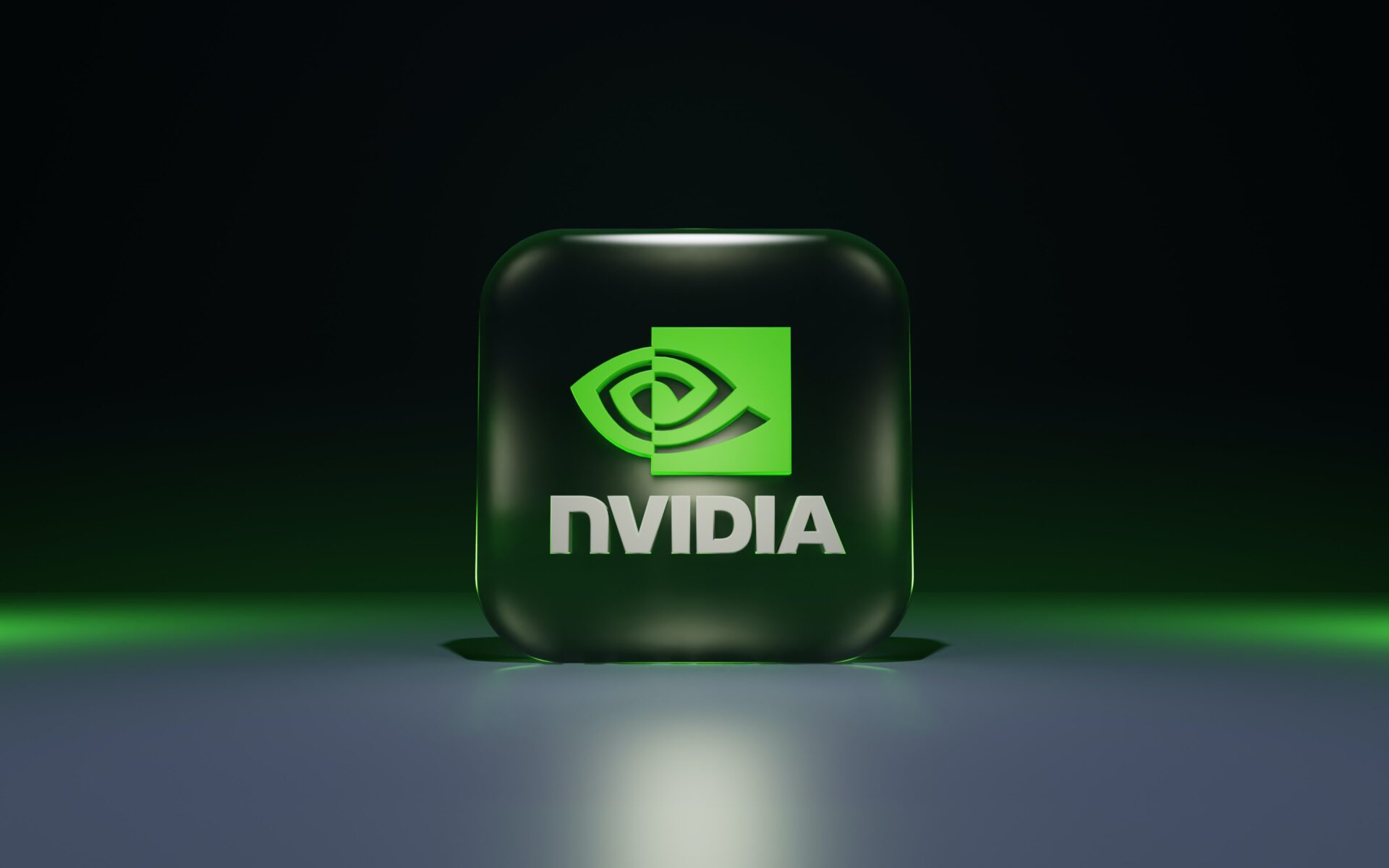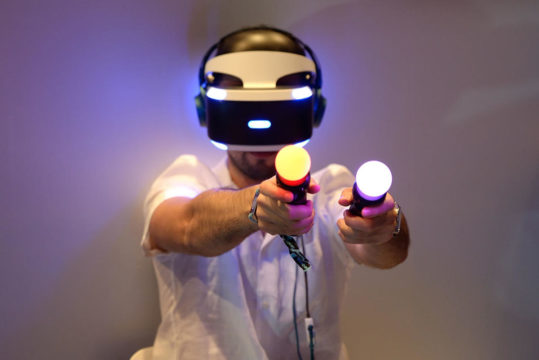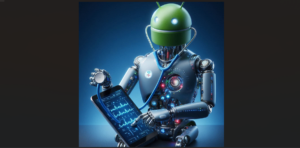If you ever needed proof that Nvidia is no longer the company you think it is, look no further than the company’s most recent GPU Technology Conference (also known as the GTC). The conference was chock-full of announcements, but the big one was of course the unveiling of the Blackwell class of AI chips which are supposedly going to be better than the widely-in-demand, and equally as expensive, Hopper processors that have powered the likes of OpenAI’s ChatGPT.
It was the demand for the H100 chips that transformed Nvidia into a company worth over $2 trillion, almost overnight in the larger scheme of things, leading some (including HackerNoon) to question whether the stock was in a bubble (almost a quarter of HackerNoon readers thought that it was). But, as if Nvidia was out to prove everyone wrong, the company’s last earnings release showed that not only was it still selling the Hopper processors, it was selling more of them and would continue to do so in the near future.
Which brings us to the Nvidia GTC. Nvidia Chief Executive Jensen Huang is no Steve Jobs, but he is certainly a shareholders’ man, and he knows how to keep them happy – presentation skills be damned. The Blackwell announcement may be nothing akin to Apple’s unveiling of the very first iPhone, but boy did Wall Street go crazy.
And with crazy, comes worry. Worry about a monopoly. Worry about supply. Worry that the company may not be producing those darn AI processors fast enough. But for Nvidia, it is COVID-19 all over again: demand is up, consumers are desperate, and the company can charge whatever price it wants for its hardware. This, ladies and gentlemen, is the future tech companies had hoped for when they began aggressively hiring during the worldwide pandemic only to find demand normalizing once the world opened up.
Which makes Nvidia quite possibly the only company to not only have profiteered off of consumers during the pandemic but to have hit an even bigger jackpot: the enterprise. Because face it, the $40,000 H100 chips aren’t for everyday consumers — they’re for the faceless corporations that can dish out the billions needed to train large language models. And therein lies Nvidia’s success.
You see, just a day after the GTC began, Jensen Huang held a meeting with investors to tell them the company was poised to win a large chunk of the $250 billion corporations spend on building and maintaining data centers every year given the variety of hardware and software Nvidia has on offer.
Now all of this is well and good for the company, but there’s one stakeholder that is hopelessly missing from all of Nvidia’s future plans: the gamers.
Nvidia never really started as an artificial intelligence company the way OpenAI and so many others like it did. It started out as a company that produced graphic cards for video games, and for a long, long time, this is what Nvidia was known for. But as an offshoot of all the research it did in producing better and better graphic cards, it ended up creating tensor cores for real-time deep learning image enhancement and upscaling technologies for use in video games. Little did Nvidia know that this technology would then serve as the backbone of LLMs, instantly transforming it as the arms dealer of choice in corporations’ pursuit of the perfect AI.
Nvidia may very well be out of touch with its roots, but that’s hardly what shareholders care about. And if Nvidia shareholders don’t care about the gamers, then Nvidia doesn’t care about the gamers. This is why, a conference that should have been about the launch of the company’s next graphic card was instantly hijacked by talk of AI, because it’s 2024, and AI, for all intents and purposes, sells.
Some may call it the ‘Woodstock of AI‘, but I’ll call it what it is: the death knell of Nvidia’s days as a gaming-focused company.
Microsoft Pulls The Corporate Espionage of a Lifetime
How do you kill two birds with one stone? I don’t know. Ask Satya Nadella.
So laser-focused is the Microsoft chief executive on monopolizing his company’s success in AI, that he has decided to do the unthinkable: hire its competitor’s staff and hand them the reins of a newly launched division focused primarily on artificial intelligence.
I am of course referring to Mustafa Suleyman and Karen Simonyan, the co-founders of AI startup Inflection AI, which, up until recently, should have been competing against Microsoft’s ward OpenAI but found itself with an offer (I assume) they could not refuse.
Yes, the very same Mustafa Suleyman who co-founded DeepMind Technologies and sold it to Google in 2014, will be leading Microsoft AI as its chief executive with the help of Karen Simonyan as the division’s chief scientist.
Microsoft also seems to have hired “several members” of the Inflection team who have chosen to join Suleyman and Simonyan to advance the company’s Copilot and other consumer AI products and research.
So what does Inflection AI get in return? A whopping $650 million, apparently, and the prestige of working with Microsoft.
That’s a lot of money to pay to get your competitor out of the way and keep OpenAI, and by extension, Sam Altman, in check, but as the world’s most valuable company right now, Microsoft can probably get away with just about anything.
Microsoft ranked #6 on HackerNoon’s Tech Company Rankingsthis week. Google was on the #13 spot.


Apple Pulls the Plug on In-House MicroLED Displays
First the electric car, now the smartwatch displays.
In perhaps what is a period of realignment for Apple, the company has pulled the plug on building its own smartwatch displays due to the cost and complexity involved.
The microLED displays were due to be introduced in a future version of the Apple Watch and were part of a push to lower the company’s reliance on partners, but it seems the company is no longer planning to design and develop that technology in house, maybe focusing instead on the newly launched (and confusingly reviewed) Apple Vision Pro(s).
As with the electric car, the decision to pull the plug will result in the elimination of job roles at the company.
Apple ranked #3 on HackerNoon’s Tech Company Rankingsthis week.

In Other News.. ?
- SEC Seeks $1.95B Fine in Final Judgment Against Ripple — via CoinDesk
- AI is a data problem. Cyera is raising up to $300M on a $1.5B valuation to secure it — via TechCrunch
- 3 ways Apple’s monopoly lawsuit could change the iPhone experience for fans — via CNN
- Musk’s X Corp loses lawsuit against hate speech watchdog — via Reuters
- Meta’s broad-brush ban on Islamic term harmed free speech, board rules — via Axios
- Adam Neumann makes a $500 million bid for WeWork that could hit $900 million if financing and diligence firm up — via CNBC
And that’s a wrap! Don’t forget to share this newsletter with your family and friends! See y’all next week. PEACE! ??
— Sheharyar Khan, Editor, Business Tech @ HackerNoon
*All rankings are current as of Monday. To see how the rankings have changed, please visit HackerNoon’s Tech Company Rankings page.
This article was originally published by Sheharyar Khan in HackerNoon.












